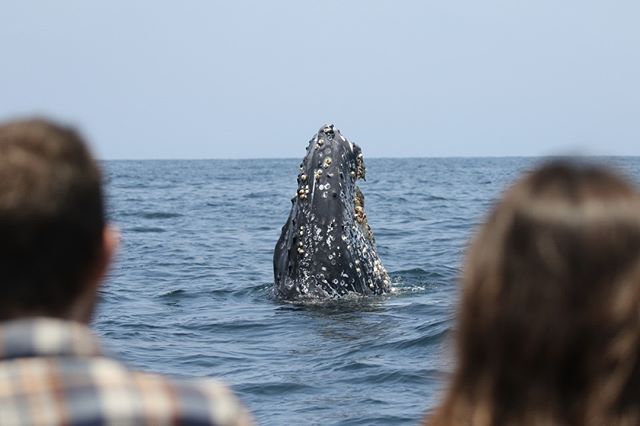We humans have a long history with whales that has changed dramatically over the centuries. This week we'd like to highlight our relationship with whales and how that has evolved over time. In our early history with whales, we used them as a resource. Native peoples and early whalers hunted whales for their meat, blubber, oil and baleen. A bit later on, commercial whaling became a profitable business due to the widespread use of whale oil in candles and lamps. The extensive commercial hunting of whales had drastic impacts on whale populations. In 1946, the International Whaling Commission was formed to help conserve whale species and in 1985 a halt was put on commercial whaling. Today, most nations no longer hunt whales and their populations are recovering. Our modern attitudes towards whales have changed with a focus towards conservation and enjoying their presence by whale watching. We consider ourselves incredibly lucky to get to view whales in their natural environment, the ocean!


